Masters Degree
Master’s Degrees

Overview
At Grady College, we offer an M.A. degree that does more than simply provide you with a title. Our program is crafted for you to grow as an intellectual, explore the many pathways of mass communication and learn skills in preparation for careers in advertising, journalism, health and medical journalism, public relations or the pursuit of higher education.
Tailor your academic journey to best suit your needs. Choose between our thesis or non-thesis pathways and earn more than just a degree. Achieve personal growth, excel professionally and explore the limitless potential of your media and communication career.
Concentration Areas
The M.A. degree is administered in cooperation with Grady’s three departments: the Department of Advertising & Public Relations, the Department of Journalism and the Department of Entertainment & Media Studies.
The master’s in advertising program prepares students for jobs in a variety of advertising, marketing communication, health communication and social/digital communication as well as for future graduate studies. Students will acquire skills as managers, analysts, strategists, creative decision-makers and planners in advertising and related marketing communication fields.
The Integrated ADPR program is designed for students who majored in advertising or public relations at Grady and want to complete an accelerated master’s program, as well. This program builds on students’ undergraduate studies, preparing them for management-level careers in PR, advertising and integrated communication in business, government or nonprofit sectors.
This MA concentration is designed for students who wish to gain an understanding of emerging media, developing content and strategically managing emerging media to further personal career goals and those of their employers. The Emerging Media master’s concentration focuses on the intersection of technology and design, allowing individuals to explore the various facets, roles and applications of emerging media across an array of disciplines and careers.
Our Emerging Media program is offered through our UGA Online program and through our New Media Institute Emerging Masters residential program.
The master’s degree in Journalism prepares students for jobs in news organizations and for doctoral programs in mass communication. Students develop advanced skills in finding and telling important stories in audio, visual and written forms, while also learning about the research that supports the disciplines of journalism and mass communication.
A non-thesis concentration that provides graduate students with understanding, insights and experiences in theories and best practices for communicating about health-related topics and issues. Courses in risk communication, public relations, advertising and health, global health and e-health are some of the courses offered to prepare graduates for careers in health media and communication.
A thesis or non-thesis track concentration in Mass Media Studies provides graduate students with understanding and professional-level skills in mass communication, entertainment and news media and media industry issues and practices. Courses in visual storytelling, film and entertainment media and mass media research methods equip students with advanced skills for a wide range of professional careers.
The master’s program with a concentration in public relations is designed to prepare aspiring students to be highly competent, socially conscious and engaged leaders in public relations with advanced knowledge, expertise, critical thinking, digital analytical skills and a global vision. The program is tailored to help students step up from the gained tactical knowledge to a more strategic, innovative, and managerial approach to launch their careers in public relations and related fields.
Master’s Program Policies and Procedures Manual
The MA degree is designed to accomplish three basic goals:
- To contribute to an individual’s intellectual growth.
- To develop a critical understanding of the institutions, processes, and effects of mass communication.
- To provide advanced preparation for communication careers in advertising, journalism, public relations, mass media studies, and entertainment and media studies or for further graduate study in communication-related fields.
This handbook teaches you about the policies and procedures of the MA program within the Grady College of Mass Communication and Journalism while guiding you through your chosen degree program.
Frequently Asked Questions
-
Many of your admissions application materials will be submitted online to UGA Graduate Admissions (e.g., application for admission, transcripts, resume, letters of recommendation, and statement of purpose). If offered admission, official transcripts should be sent electronically from your institution or mailed. The application process begins by submitting your application and materials to the UGA Graduate School, at their website Graduate Studies website.
Next, you should visit the Grady College graduate application webpage, complete a copy of the Grady Supplemental Application and email it to anne.hurne@uga.edu.
Both the UGA Graduate School and Graduate Studies Office of Grady require the submission of specific admissions documents for the PhD and MA degree. The Grady College MFA degree has different requirements. See the MFA Narrative Media Writing webpage or the MFA Film, Television and Digital Media website for more information about those degrees.
Upload the following items to the Graduate School: (1) completed application form, (2) all transcripts (from every institution of higher learning at which you were enrolled; for even one course), (3) current resume, (4) Three letters of recommendation (completed via email after you submit your recommenders email addresses. Ph.D. candidates should submit 3 former professors as recommenders), and (5) a 2-3 page Statement of Purpose (SOP). The SOP should provide information about your educational background and interests, your reasons or interests in pursuing a graduate degree in a journalism or mass communication area, and the reasons Grady College’s graduate program is a good match for you and your professional, academic, or research interests.
A small number of competitively awarded graduate assistantships are available to admitted MA students. These assistantships usually involve 13 hours of work per week for the 9-month assistantship period, with most assignments being teaching or research assistants. These assistantships provide a monthly stipend (with 10 monthly payments) and a reduction of tuition to $25 per semester. These are renewable for up to two years based on academic and job performance. MA assistantship awards often involve a competitive application and selection process, where interested students submit a cover letter and resume in response to a provided assistantship opening.
If you wish, you can apply for assistantship consideration when you complete the Grady College Supplemental Application. This form lets us know that you would be interested in being considered and enables us to send you graduate assistantship position announcements
The length of the MA degree program will depend on your undergraduate degree and the courses taken to complete that degree.
It takes from 3 to 5 semesters to finish the MA program assuming registration for a full credit load fall, spring, and summer semesters. The typical MA student spends 3 to 5 semesters taking courses and writing a thesis; the typical MA non-thesis student spends 3 to 4 semesters taking courses.
An additional semester is normally required if prerequisites are required. MA students without courses in journalism and mass communication-related areas will most likely have to satisfy prerequisite courses, which will require additional time.
For planning purposes, it is best to think about the MA as two-year degree program.
Our Ph.D. degree takes a minimum of three years to complete. The first two years are spent taking courses. The third year of the program is spent doing dissertation work. Comprehensive exams and the dissertation proposal are completed during the student’s second summer or third fall semester.
Most graduate students are admitted for fall semester entry. Emerging Media master’s students start in the summer. An accepted student may begin his or her studies summer semester; however, a limited number of undergraduate and graduate courses are offered each summer. Most students begin classes in the fall.
-
Think of the Graduate School as the U.S. Federal government and the Graduate Office of the Grady College as a state. As a state, we are subject to the rules, policies, and regulations of the Graduate School. In effect, the Graduate School tells us what we can and cannot do. For example, the Graduate School approves degree programs and sets the required hours for each degree. Therefore, if you are a MA thesis student, you must complete 27 hours of course work and complete and defend a thesis. If you are a MA non-thesis student, you must complete 33 hours of course work and pass a comprehensive exam.
As a state, we set degree prerequisites, concentration requirements, course-specific hour limitations, and such. The Graduate School does not sign off on the waiver of prerequisites, the substitution of an elective course for a required course in a particular concentration, or taking 6 hours of JRMC 8050 instead of 3 hours. The authority to make Grady program-specific modifications/changes resides with the advisor/major professor.
Any advisor-approved modifications/changes in your program of study must be submitted in letter form to the Grady Graduate Office. The letter will then be co-signed by the Associate Dean and placed in you official file. If there is a problem with the approval, the advisor will be contacted to correct the problem.
You can find information about Graduate School rules, policies, and regulations in three places:
1. The UGA Graduate Bulletin (see sections on General University Information and General Degrees)
2. https://grad.uga.edu/
3. Grady Graduate Student listserv: enrolled students can subscribe. How to add yourself: email listserv@listserv.uga.edu. Type “subscribe gradygrd” in the body of the email. Send the email. Follow the subsequent steps to verify your email.Similar information about the Grady College can be obtained online:
An advisor is the person who helps you select courses and plan your program of study. A major professor is the person who directs your thesis/dissertation research, or your MA non-thesis requirements. Your advisor and major professor may be the same person. Often a student migrates from an assigned advisor to a major professor during the course of his/her program of study. Your major professor then becomes your advisor.
Your advisor or major professor should be prepared handle all your routine questions about curricula, Graduate School and Grady policies, and such. Your advisor has the authority to exercise judgments about program-of-study modifications, course exemptions/substitutions, and such, as long as such decisions are within the guidelines and policies of the Graduate School.
You will be assigned an advisor in your first semester. However, you may change advisors during the course of your program of study. The call is yours — you simply ask another faculty member to serve as your advisor, and if the person agrees, you complete and file an Advisor Assignment/Advisor-Major Professor Change Form. Anne Hurne can help you with this.
Research faculty interests and specialties. When you identify a faculty member who matches your scholarly interests, ask that person to serve as your major professor. Once selected, the major professor assumes advising duties and is responsible for directing your program of study, administering any required examinations, and directing thesis/dissertation research or MA requirements.
Don’t forget to complete and file an Advisor Assignment/Advisor-Major Professor Change Form once you have secured your major professor.
Centers
Brain, Body and Media Lab (BBAM)
Features facial electromyography and electrocardiography equipment
that measures activity in the heart and face, and electroencephalography (EEG) equipment that measures brain wave activity.
- Evaluates mediated messages through psychophysiological research
- Investigates cognitive and affective messages
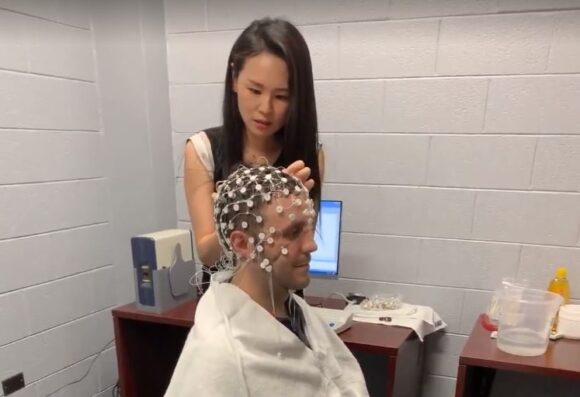
Digital Media Attention and Cognition Lab (DMAC)
Features sophisticated eye tracking and facial expression analysis Equipment. Studies how consumers consume and verify news.
- Evaluates the connection of emotion with social media and advertisements
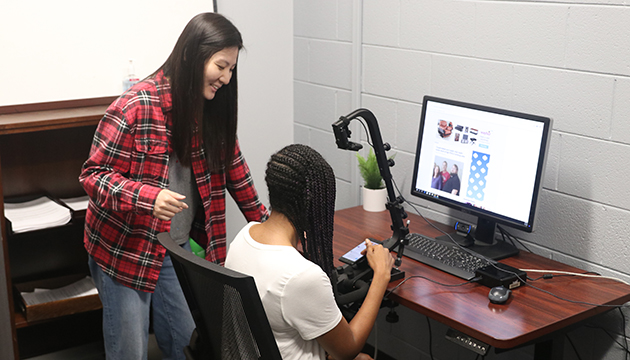
SEE Suite
Features 20 computer stations with Crimson-Hexagon software and large screens for social media listening and analytics.
- Researches engagement and strategic insights
- Analyzes big data and theory building
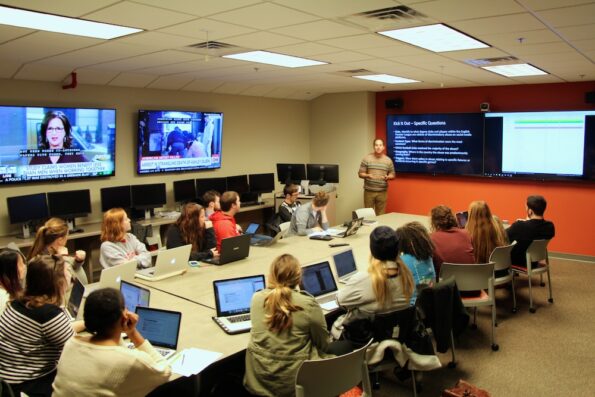
Center for Advanced Computer-Human Ecosystems
The Center for Advanced Computer-Human Ecosystems (CACHE) is an interdisciplinary research center for a human-centered approach to investigating virtual experiences and how they influence the attitudes and behaviors of users. The center makes forward-thinking inquiries into how interactions in virtual worlds can shift traditional rules and norms of social interactions in the physical world. Projects apply frameworks of psychosocial and behavioral sciences to explore, test and evaluate the impact of virtual and augmented environments on a wide range of social issues.
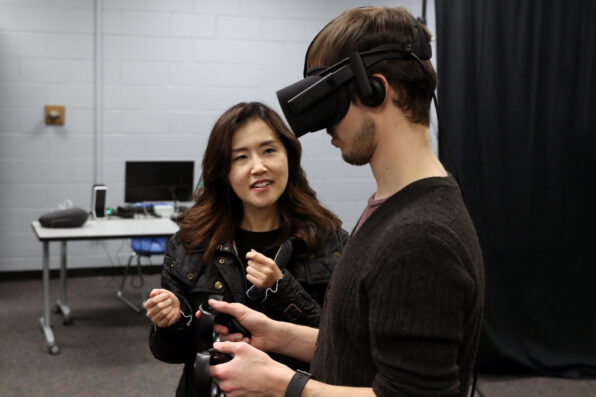
Qualitative Research Lab
Founded in Spring 2022, the Qualitative Research Lab, directed by Dr. Karin Assmann, an assistant professor in the Journalism Department, has the software needed for students, both undergraduate and graduate, to conduct qualitative research, which involves collecting and analyzing non-numerical data, such as interviews and documents. Under Dr. Assmann, the lab also provides a space for student researchers to interact and brainstorm with their peers. The Qualitative research lab is located in room 252.
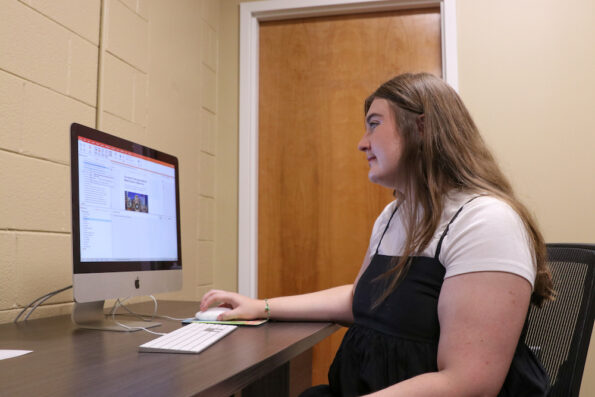
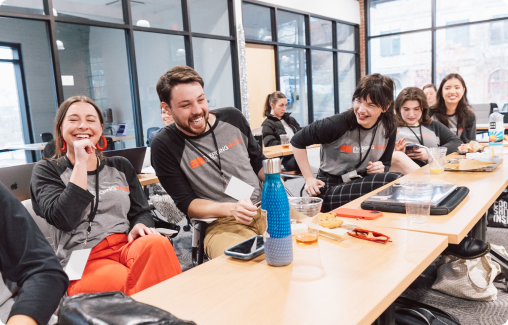
Double Dawgs
Double Dawgs is an initiative that encourages undergraduate students to start planning for their master’s degree while they are still in school.
The Latest
Read the newest headlines, get updates and discover events happening at Grady.
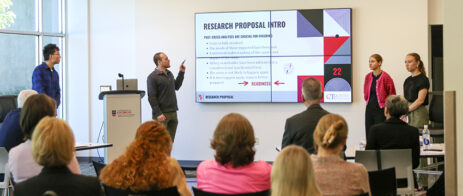
Graduate Certificate in Crisis, Risk, and Disaster Communication approved for Fall 2024
The University of Georgia has been approved to offer a Graduate Certificate in Crisis, Risk, and Disaster Communication (CRDC), a program that will educate students in skills needed for proactive, […]

MFA Screenwriting student’s film to premiere at Atlanta Film Festival
It was nearly three years ago that Win Marks, a first-year MFA student, started working on “Do You Say What You Mean?” Now, the Atlanta local’s film is set to […]
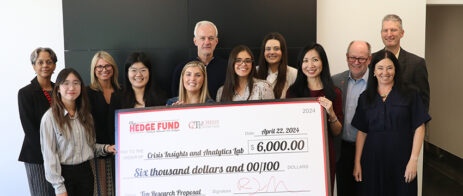
Crisis Communication Hedge Fund provides motivation for graduate student research
The Hedge Fund: Venture Between the Hedges is providing more than just motivation for students in the Graduate Crisis Communication course at Grady College. The winning team’s proposal will be […]

Georgia on Your Mind podcast tells stories beyond the UGA hedges
Georgia on Your Mind, a podcast created and produced by a team of Emerging Media master’s degree students, has launched its second season, thanks to the right spark. The Spark […]

Profiles of Tenacity: Johnny Klein
Integrated AdPR graduate student Johnny Klein found community in Grady through involvement in organizations and immersing himself in AdPR’s culture. He encourages other students to try different activities and enjoy […]
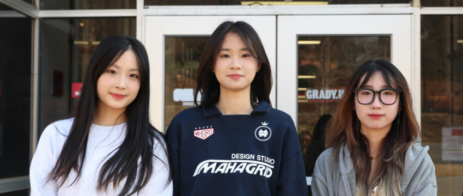
International students thrive in AdPR’s 3+1+1 program
Grady College’s Department of Advertising and Public Relations welcomed the third cohort of 3+1+1 dual degree students in fall 2023. In partnership with Shanghai Normal University and Shanghai International Studies […]

Profiles of Tenacity: Charles Burney
Charles Burney recently graduated from Grady College with a Bachelor’s in journalism and is currently pursuing a Master’s in the same field. He’s driven to excel with a determination to […]
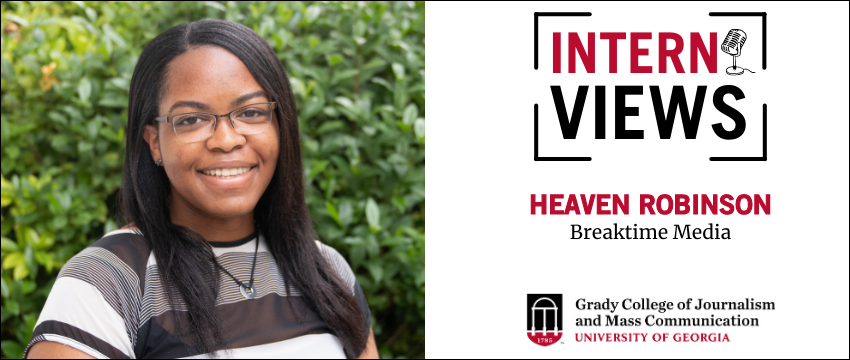
Grady InternViews: Heaven Robinson
This is part of a series where we ask Grady College students to describe their summer internship experience. Heaven Robinson is an Emerging Media Masters student working with Breaktime Media […]

#ProfilesofTenacity: Rachel Ziner
Rachel Ziner was taught the value of setting goals and achieving them from a young age. To her, tenacity comes after those goals are achieved. Ziner is a Double Dawg, […]
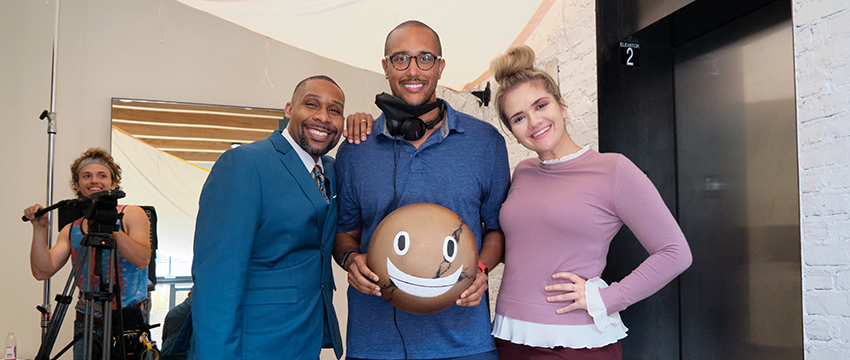
MFA Film thesis film to premiere at Atlanta Film Festival
“Black Butterfly,” a thesis film written, directed, produced and edited by Kelvin Summerhill (MFA ’22), has been selected as one of the narrative short films to premiere at the 47th […]
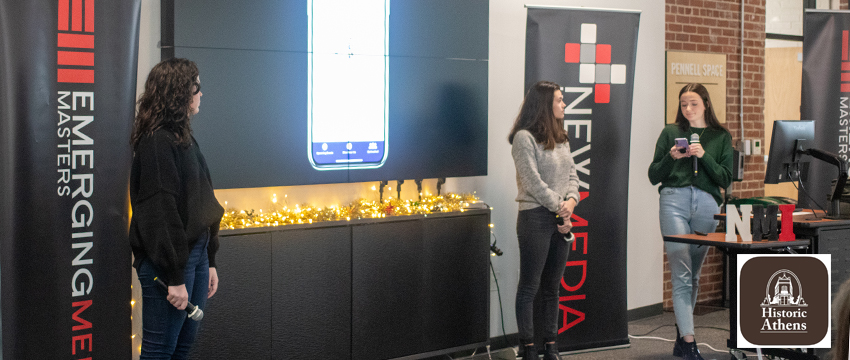
Emerging Media students create Historic Athens app
Using 21st Century technology to provide users with a sense of history from the 1800s and 1900s is the goal of a new Historic Athens app, created by a team […]
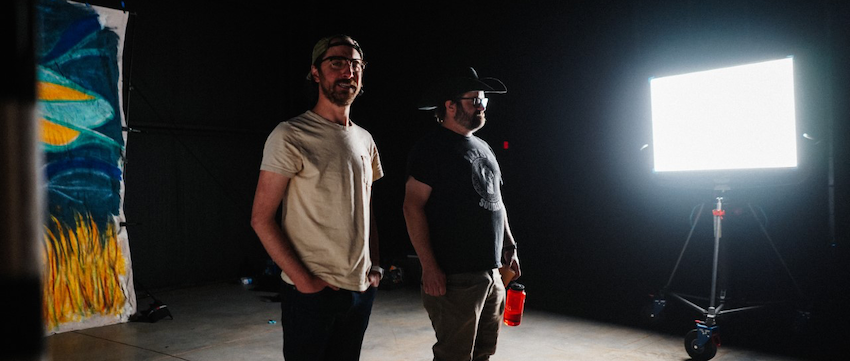
UGA MFA Film program goes green
Film sets are hubs for creation. They are where concepts and ideas turn into visual, captivating works of art. But, unfortunately, television shows and movies aren’t the only thing created […]

#ProfilesofTenacity: Kate Hester
Kate Hester is a second-year graduate student, studying journalism with an emphasis in innovation and leadership. During her time at Grady, she’s been involved as a graduate assistant for the […]
Events

Tommy Tomlinson Book Reading & Signing
Join Tommy Tomlinson for a book signing session and a reading of his book, “Dogland” at 6 p.m. on July 31, 2024.

Philadelphia Alumni Event
Save the date to join Dean Davis and other alumni for our Grady College networking event in Philadelphia during the AEJMC Conference. Reserve your spot here by August 1.
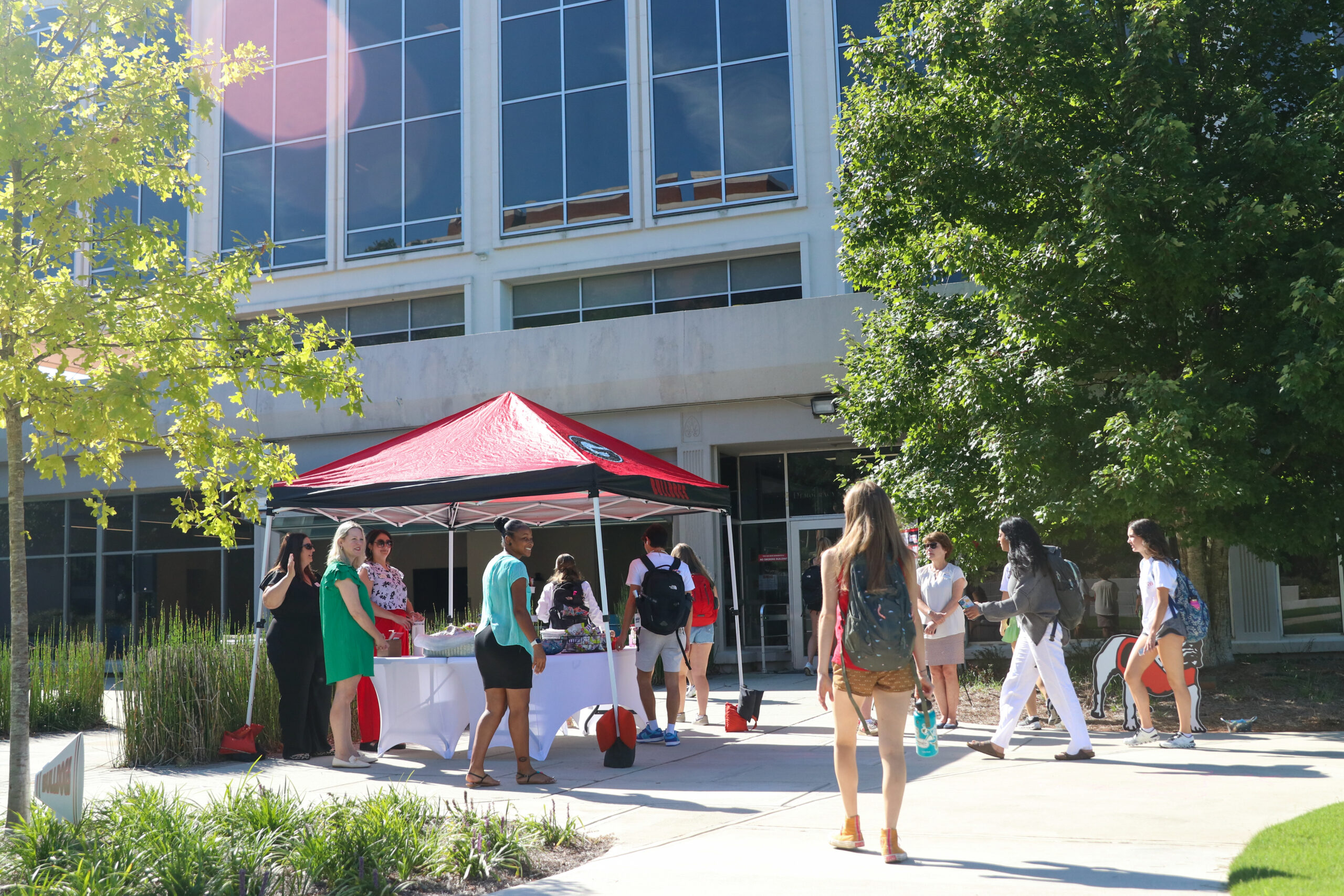
Grady College Welcome Back Fall 2024
Welcome to our new and returning students! Celebrate with snacks, refreshments and activities on the Schnitzer Family Media Lawn from 10 a.m. to 4 p.m. each day!
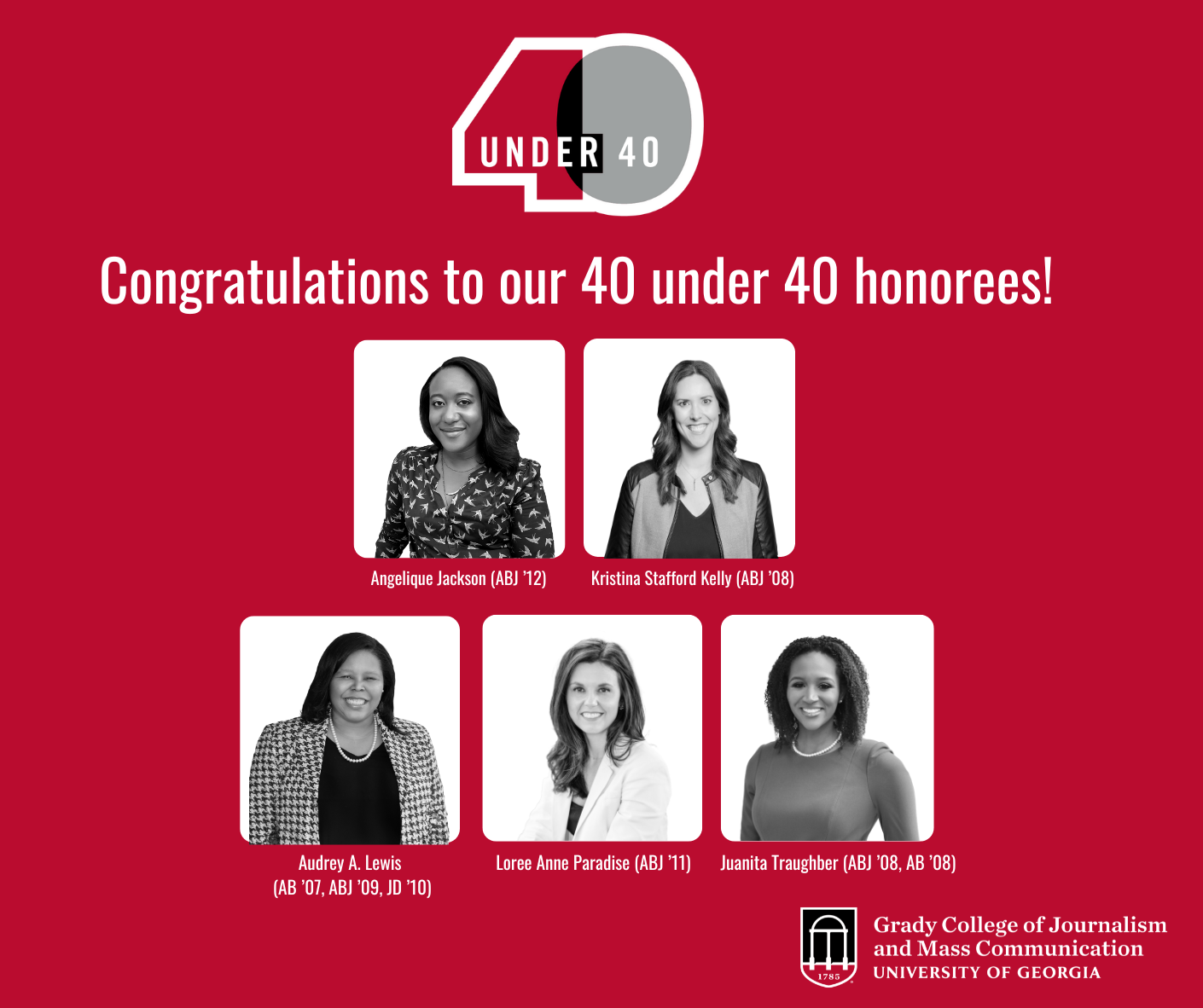
UGA 40 Under 40 celebration
A panel discussion featuring Grady College’s 5 40 Under 40 honorees will be held on September 6, 2024 at 10 a.m. in the Peyton Anderson Forum.
Fall Alumni Board Meeting
Save the date for the fall 2024 Alumni Board meeting. More details will be announced closer to the date.
Maxine Clark Lecture
Join Maxine Clark (ABJ ’71) on September 16, 2024, for a preview of the film “Unstuffed: A Build-A-Bear Story.”

Apply
Your advanced education starts here. Admission to Grady College’s graduate studies is a collaborative process involving Grady College and the University of Georgia’s Graduate School.
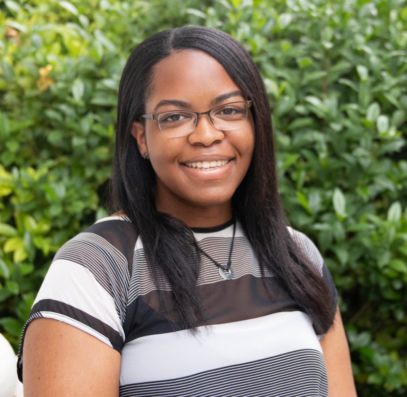
PERSPECTIVES
“Everyone at Grady genuinely wishes to help us learn and succeed, and I knew the major and the community would provide a great foundation for my career in advertising.”
Heaven Robinson
Advertising AB ‘22, Current MA Student
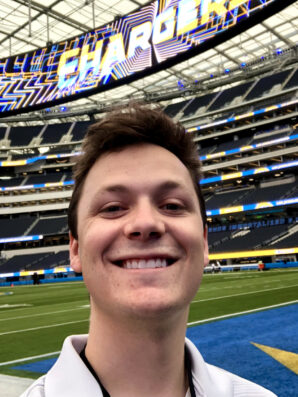
PERSPECTIVES
“Grady College has done a fantastic job with its people, first and foremost. All the faculty and staff are there because they want you to succeed. They will give you all of the resources and advice that you need.”
Bailey Pelletier
EMST AB ‘22, Emerging Media MA ‘23

PERSPECTIVES
“I want to be a great storyteller and journalist. I knew that Grady is the best of the best, therefore I felt as though it was only right to join the UGA community.”
Riley Armant
MA ‘22
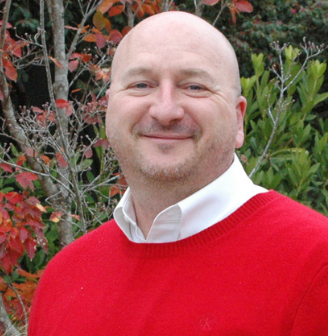
PERSPECTIVES
“While I have worked in journalism for 30 years, I never did study it at a collegiate level, but . . . I decided there was no better place to get training in that field than at Grady.”
Eduardo Morales
Current MA Student
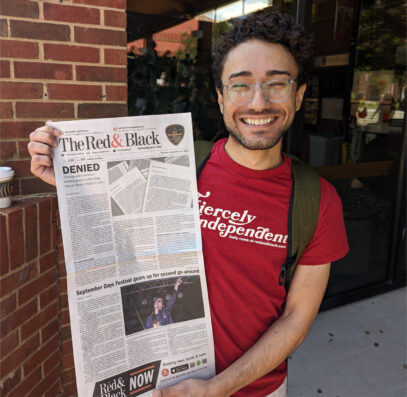
PERSPECTIVES
After the career fair, I was invited to an upstairs suite to meet the managing editor of a
major legacy newspaper, and that’s one of the coolest things I’ve been able to say out loud.
Overall, I’m thankful for the many opportunities professors at Grady entrusted me with.”
Alander Rocha
Health and Medical Journalism MA ‘23
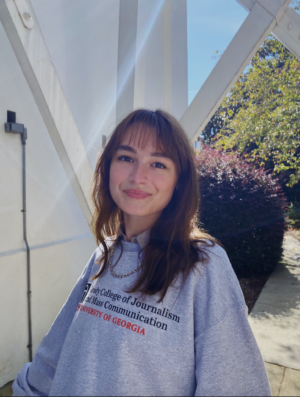
PERSPECTIVES
“I want to tell stories that matter, and Grady has the classes and extracurricular opportunities to help me do that.”
Jacqueline GaNun
Journalism AB ‘23, Current MA Student
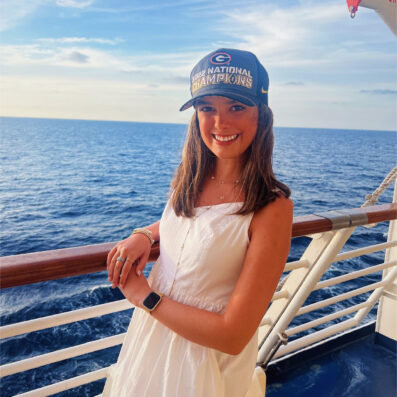
PERSPECTIVES
“My campus involvement serves as a great source of motivation for me. Being able to give back to the UGA and Grady community and support my peers is something I truly enjoy. I am constantly on the lookout for new opportunities to get involved, take on leadership roles and continue making a positive impact on campus.”
Raynor Manley
Public Relations AB ‘23, Current MA Student
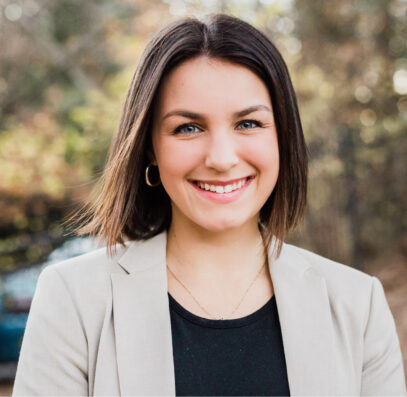
PERSPECTIVES
“The knowledge from both of my degrees has made me well-rounded in understanding both traditional and digital media strategy while prioritizing the needs of the target market.”
Rachel Ziner
Public Relations AB ‘22, Emerging Media MA ‘23